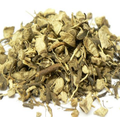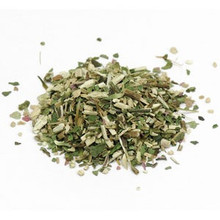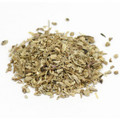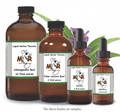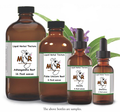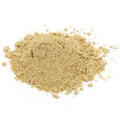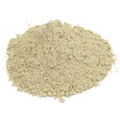 Loading... Please wait...
Loading... Please wait...- Home
- Bulk Herbs
- Herbs (D-F)
- Echinacea purpurea Herb
- Home
- Herbs - Organically Grown & Wild Crafted USA
- E-F
- Echinacea purpurea Herb
Echinacea purpurea Herb
Product Description
Echinacea Purpurea Herb
Origin - Organically Grown - USA
Medicinal Uses - Echinacea stimulates the body's immune system against all infectious and inflammatory conditions, counteracts pus, and stimulates digestion. It specifically strengthens the immune system against pathogenic infection by stimulating phagocytosis, T-cell formation, and by inhibiting the hyalurinadase enzyme secreted by bacteria to effect the breakdown of cell walls and the formation of pus. It is one of the most powerful and effective remedies against all kinds of bacterial and viral infections. It should be taken frequently, every hour or two during acute stages of inflammation, tapering off as symptoms improve. There are no generally recognized side effects of Echinacea overdose, but some have noted a peculiar scratchy, tickling sensation in the throat from excessive use.
- Root (chewed, or in tea) used for snakebites, spider bites, cancers, toothaches, wounds, external ulcers, bed sores, burns, boils, acne, eczema, hard-to-heal sores and wounds, flu, fever, and colds.
- Blood poisoning, pelvic inflammatory disease (PID), lowers blood pressure, fevers, carbuncles (boils), acne, eczema, bee stings and poisonous insects and snakes, erysipelas, AIDS, restore normal immune function in patients receiving chemotherapy, gangrene, diphtheria, tonsillitis, sores and infections, wounds (especially hard-to-heal), pustules, abscesses, lymph glands, strep throat, excellent blood cleanser, flatulence, syphilitic conditions, gonorrhea, prostatitis, vaginal yeast infection, candida, peritonitis, prevention of growth and development of pathogenic organisms, stimulation of the immune system, typhoid fever and indigestion.
- There have been studies using echinacea in the food of dogs and cats with infections. The results were very positive and the conclusions were that the herb was effective in fighting infections in animals. The dosages are quite different for animals than for humans. Recommended doses are to use approximately 1.0 g of herb per 10 kg of body weight.
- The Sioux Indians used fresh scraped root for rabies (hydrophobia), snakebites, and septicemia.
Herbs to Combine/Supplement - Combined with Bearberry and Yarrow, Echinacea is thought to be effective against cystitis.
Parts Used - Roots are dug up and dried for use in tinctures, juice, extracts, ointments, tablets, tea and capsules. The aerial portions are sometimes used in conjunction with the roots in mixtures.
Precautions - There are some who should not take this herb. If you suffer from autoimmune disorders like AIDS/HIV, white blood cell disorders, tuberculosis or multiple sclerosis, it is best avoided. If you take steroid medications such as hydrocortisone, cortisone, prednisolone or similar immune suppressants, you should not take this herb, as it may counteract the medications you are taking. While the herb is considered to be safely tolerated by most people, be alert to signs of allergic reactions.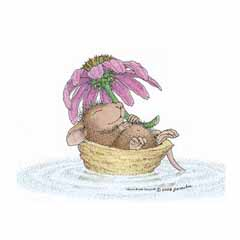
Preparation and Dosage - While the roots contain the most effective compounds, increasingly commercial preparations are also including the leaves, flowers, seeds and stems, so different products may contain different amounts of the beneficial compounds. For liquid extracts or tinctures follow manufacturer's instructions, as formulations may vary. Extracts are often prepared with glycerin or alcohol, so if you are sensitive to either of these substances, avoid them. Recommended dosages range from one to five droppersful (0.5 to 5 ml) three times per day.
For herbal tea - Tea brewed from roots and/or aerial parts and taken no more than 1 cup three times per day.
Disclaimer - The information presented herein by Mountain Maus’ Remedies is intended for educational purposes only. These statements have not been evaluated by the FDA and are not intended to diagnose, cure, treat or prevent disease. Individual results may vary, and before using any supplements, it is always advisable to consult with your own health care provider.


